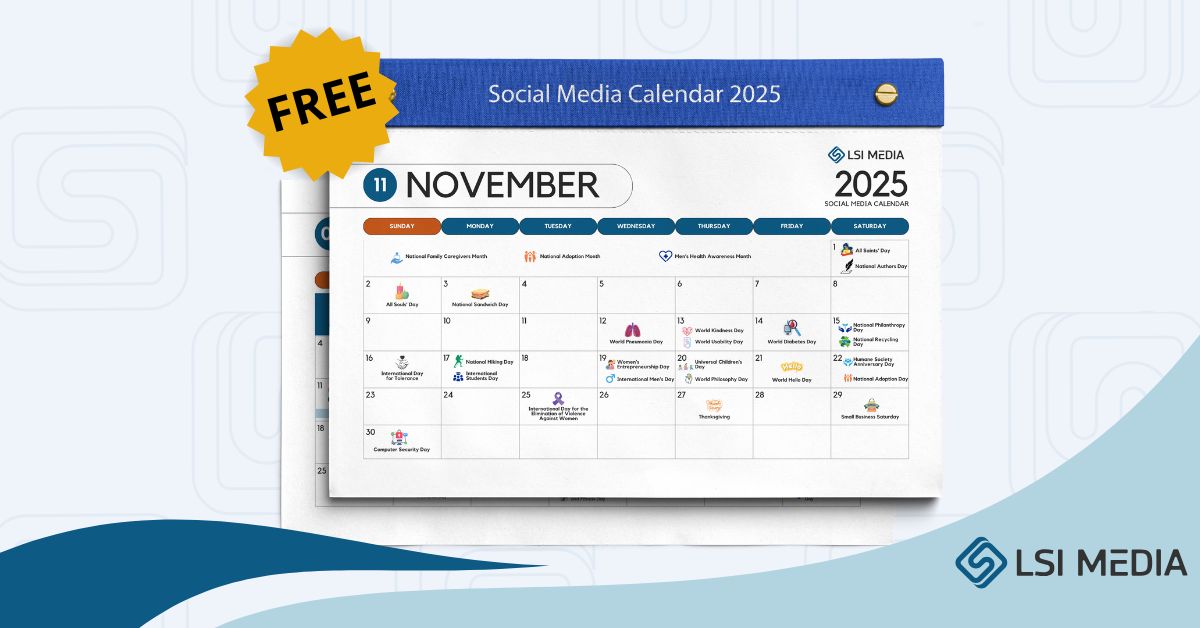The Power of Social Media Marketing for Explosive Growth
In today’s dynamic landscape, understanding how media transforms marketing campaigns is crucial for achieving explosive growth. The integration of various media channels into marketing strategies has revolutionized the way businesses connect with their target audience, build brand awareness, and ultimately drive sales. From traditional marketing approaches to the cutting-edge realm of digital marketing, media serves as the conduit through which marketing messages are delivered and received, shaping perceptions and influencing consumer behavior. This article delves into the multifaceted role of media in modern marketing, exploring how businesses can leverage its power to create impactful campaigns and unlock unprecedented levels of success.
The Power of Social Media Marketing in Modern Media and Marketing
Media in marketing has evolved significantly with the rise of digital marketing and social media platforms. Marketers today leverage various media channels to enhance brand awareness and engage with potential customers effectively.
Social media marketing has become a cornerstone of marketing strategies. Through targeted social media campaigns, brands can reach their target audience where they spend most of their time. Social media posts, whether organic or paid, play a crucial role in building relationships with customers and increasing brand visibility.
Influencer marketing is another powerful aspect of media in marketing. By partnering with social media influencers, brands can tap into new audiences and enhance their marketing outcomes. The effectiveness of these campaigns can be measured through marketing analytics, allowing marketers to refine their strategies for better results.
Utilizing different forms of media, such as earned media, owned media, and paid media, creates a comprehensive marketing plan that encompasses various types of media. Digital content produced for social media channels can significantly impact customer relationship management and drive engagement.
Definition of Media and Marketing
At its core, media encompasses the various channels and platforms used to communicate information. When considered in the context of marketing, media represents the avenues through which marketers deliver their marketing messages to potential customers and their target audience. Marketing, on the other hand, involves the strategic activities employed to promote and sell products or services. The synergy between media and marketing lies in the ability of media channels to amplify the reach and impact of marketing campaigns, driving brand awareness and fostering engagement. Understanding this fundamental definition is critical for marketers seeking to craft effective marketing strategies and achieve success in an increasingly competitive landscape.
Types of Media in Marketing
The spectrum of media available for marketing purposes is broad and constantly evolving. Traditional marketing channels, such as television, radio, and print, continue to hold value, particularly for reaching specific demographics. However, the rise of digital marketing has introduced a plethora of new media options, including social media channels, search engine marketing, email marketing, and content marketing.
| Media Type | Examples |
|---|---|
| Paid Media | Advertisements on social media platforms and search engine results pages |
| Owned Media | Company’s website and blog |
| Earned Media | Positive reviews and social media posts from satisfied customers |
The Role of New Media in Campaigns
New media, particularly social media marketing, has revolutionized marketing campaigns, offering unprecedented opportunities for engagement and reach. The power of social media marketing lies in its ability to connect businesses directly with users, fostering a sense of community and enabling real-time interaction. Through carefully crafted social media posts and influencer marketing initiatives, brands can tap into the vast network of social media channels, building brand awareness and driving traffic to their websites. Furthermore, the use of marketing analytics tools allows marketers to track the performance of their strategies, measuring engagement rates, reach, and conversions. This data-driven approach enables continuous optimization of campaigns, maximizing success and ensuring that the message resonates with the target audience. The adoption and understanding of new media is now an integral part of every marketing campaign.
Marketing Strategies for Explosive Growth
In today’s digital landscape, leveraging media in marketing is essential for achieving marketing success. With the rise of social media, brands have the opportunity to engage with their target audience through various social media platforms. By implementing effective social media marketing strategies, businesses can utilize the power of social media to increase brand awareness and drive marketing outcomes.
Utilizing content marketing and influencer marketing allows marketers to create engaging social media posts that resonate with potential customers. Additionally, earned media and owned media enhance visibility, while paid media options amplify reach across various media channels.
To effectively execute a marketing plan, marketers must focus on marketing analytics to track return on investment and the effects of social media campaigns. Tools like Sprout Social provide insights into social media usage, allowing businesses to refine their media strategy.
Moreover, incorporating mobile marketing and utilizing email marketing software can enhance customer relationship management and foster stronger customer relationships. As brands on social media continue to evolve, understanding the various forms of social media will be crucial for adapting to changing consumer behaviors.
Ultimately, the combination of digital marketing tactics and traditional marketing methods can lead to successful marketing campaigns that not only reach but also engage social media users. By focusing on the click-through rate and creating targeted social media content, brands can effectively promote their products and services to a broader audience.
Developing a Marketing Plan
Crafting a robust marketing plan is paramount for any organization aiming for explosive growth. The cornerstone of any successful endeavor is a well-defined marketing plan that outlines specific, measurable, achievable, relevant, and time-bound (SMART) goals. A comprehensive marketing plan incorporates a thorough analysis of the target audience, identifying their needs, preferences, and online behavior. This involves segmenting the target audience based on demographics, psychographics, and purchasing patterns to tailor campaigns effectively. Furthermore, the marketing plan should detail the specific media channels to be utilized, whether it’s leveraging the power of social media marketing, investing in paid media, or creating engaging digital content for owned media platforms. By meticulously mapping out these elements, businesses can optimize their marketing spend and maximize their chances of success.
Integrating Social Media Marketing Strategies
The integration of social media marketing strategies into broader marketing campaigns has become indispensable. Social media platforms provide unprecedented opportunities to connect directly with potential customers, build brand awareness, and foster customer loyalty. Social media marketing campaigns are more than just posting; they require a strategic approach that aligns with the overall marketing objectives. Social media marketing involves creating compelling digital content that resonates with the target audience and encourages engagement. Utilizing marketing analytics tools, such as Sprout Social, allows marketers to track the performance of their efforts, measuring metrics like reach, engagement rates, and conversions. Moreover, influencer marketing has emerged as a powerful tactic within social media marketing, enabling brands to tap into the influence of social media influencers to reach a wider audience and build trust with potential customers through their social network.
Utilizing Earned Media Effectively
Earned media represents a valuable asset in any marketing plan, offering credibility and authenticity that paid media simply cannot replicate. It encompasses all the positive mentions, reviews, and social media posts generated by customers, influencers, and the press. To effectively utilize earned media, marketers must actively cultivate relationships with journalists, bloggers, and social media influencers. This involves creating compelling content that is shareable and newsworthy, encouraging organic mentions and backlinks. Monitoring social media channels and online forums is crucial for identifying opportunities to engage with customers and address any concerns promptly. By responding to reviews and comments in a timely and professional manner, businesses can demonstrate their commitment to customer satisfaction and foster positive word-of-mouth. Furthermore, encouraging user-generated content through contests and campaigns can amplify earned media reach and engagement.
Media Channels and Their Impact
Media channels play a crucial role in shaping effective marketing strategies. With the rise of social media, marketers can leverage platforms like TikTok, Instagram, and Facebook to reach their target audience through tailored social media marketing campaigns. By utilizing owned media, earned media, and paid media, brands can create a comprehensive marketing plan that enhances brand awareness and engages potential customers. The power of social media marketing lies in its ability to build relationships through engaging social media posts and influencer marketing. Marketers can analyze marketing outcomes using analytics to refine their tactics and improve return on investment. As digital marketing continues to evolve, understanding the effects of social media and leveraging various media channels will be essential for marketing success.
Owned Media vs. Paid Media
When devising marketing strategies, understanding the crucial distinction between owned media and paid media is essential. Owned media encompasses all the channels a company controls directly, such as its website, blog, and social media platform profiles. These platforms offer a space for publishing digital content, crafting a cohesive marketing message, and fostering direct engagement with potential customers. In contrast, paid media involves paying for advertising space across various media channels. Examples include search engine marketing, social media marketing campaigns, and display ads. Paid media offers the advantage of reaching a broader target audience and driving immediate traffic. However, a successful marketing plan often involves a blend of both owned and paid media, leveraging each channel’s strengths to maximize brand awareness and drive success.
Exploring Social Media Channels
Exploring social media channels is fundamental to modern digital marketing. The rise of social media usage has transformed how businesses connect with their target audience and implement marketing strategies. Each social media platform, from Facebook and Instagram to Twitter and LinkedIn, offers unique opportunities for engaging with users and building brand awareness. Social media marketing campaigns often involve crafting engaging posts, running targeted advertisements, and partnering with social media influencers to reach a wider audience. Furthermore, businesses can use marketing analytics tools to track the performance of their strategies, measuring metrics such as reach, engagement, and conversions. By strategically exploring social media channels and leveraging the power of social media marketing, businesses can drive significant growth and enhance their overall success.
Effects of Social Media on Marketing Success
The effects of social media on marketing success are undeniable in today’s digital age. Social media marketing has revolutionized the way businesses connect with potential customers, build brand awareness, and drive sales. The power of social media marketing lies in its ability to reach a vast target audience at a relatively low cost, making it an attractive option for businesses of all sizes. Through strategic campaigns, businesses can create engaging digital content that resonates with users and encourages sharing and engagement. Furthermore, social media channels provide a platform for direct interaction with customers, enabling businesses to address concerns, gather feedback, and build stronger relationships. By leveraging social media effectively, businesses can significantly enhance their success, drive growth, and achieve a competitive edge in the marketplace. Social media influencers can also help, and Sprout Social is used to measure your success.
Enhancing Marketing Skills through Media
An effective media strategy incorporates all types of media—owned media, earned media, and paid media—alongside modern tactics such as affiliate marketing, mobile marketing, and email marketing software. A well-crafted social media marketing plan blends content marketing, digital content, and paid advertising to deliver a consistent marketing message via various social media channels. With social media marketing strategies and targeted campaigns, brands can connect with social media users, influence social media usage, and adapt to the effects of social media on consumer behavior.
Marketing skills now require proficiency in marketing analytics, understanding the forms of social media, and using tools like Sprout Social to monitor social media presence, track click-through rates, and measure return on investment. By aligning marketing tactics with a clear marketing plan, brands can generate new leads, acquire new customers, and drive measurable marketing outcomes. The digital landscape demands that businesses go beyond paid advertisements, paid search, and direct mail, embracing online marketing opportunities that include social media influencers, paid media, and targeted social media campaigns.
Skills Required for Digital Marketing
In the realm of digital marketing, a diverse skill set is essential for success. Aspiring marketers must possess a strong understanding of several key areas. These include:
- 1
Marketing analytics, allowing them to interpret data and make informed decisions about their campaigns.
- 2
Content marketing, which is crucial for creating engaging digital content that resonates with the target audience and drives conversions.
- 3
Social media marketing, vital for managing a brand’s presence across various social media channels, building brand awareness, and fostering relationships with users.
Furthermore, a grasp of search engine optimization (SEO) is necessary for improving a website’s visibility in search engine results pages. Skills in mobile marketing, influencer marketing, affiliate marketing, and email marketing are also highly valuable, as they enable marketers to reach potential customers through multiple touchpoints and maximize success.
Leveraging the Power of Social Media Marketing
Leveraging the power of social media marketing is a cornerstone of successful modern marketing strategies. Social media platforms provide unparalleled opportunities to connect directly with potential customers, build brand awareness, and drive engagement. Effective campaigns involve crafting compelling posts that resonate with the target audience and encourage sharing. Partnering with social media influencers can further amplify reach and build trust among users. Utilizing marketing analytics tools, such as Sprout Social, enables marketers to track the performance of their strategies, measure key metrics, and optimize their efforts for maximum impact. By strategically leveraging the power of social media marketing, businesses can enhance their brand reputation, drive traffic to their website, and achieve significant success in the digital landscape. Understanding the power of social networks is a must.
Measuring ROI from Marketing Campaigns
Measuring the return on investment (ROI) from marketing campaigns is crucial for demonstrating the value of marketing efforts and making data-driven decisions. Marketing analytics plays a vital role in tracking the performance of campaigns across various media channels, including social media channels, search engine marketing, and email marketing. By analyzing key metrics such as website traffic, conversion rates, lead generation, and sales revenue, marketers can assess the effectiveness of their strategies and identify areas for improvement. Comparing the costs of campaigns with the revenue generated provides a clear picture of the ROI, allowing businesses to optimize their marketing plan, allocate resources efficiently, and ensure that their marketing investments are generating a positive return. Accurate ROI measurement enables marketers to demonstrate the impact of their work and secure continued investment in marketing initiatives. To measure success, Sprout Social can be used.
Digital Media and Marketing: How New Media Changes
Media and marketing have transformed dramatically, driven by the rise of social media and the growing influence of new media. Today, brands on social media leverage a mix of owned media, earned media, and paid media to connect with social media users, promote products or services, and achieve marketing success. From traditional marketing methods like direct mail to digital media strategies that include content marketing, affiliate marketing, and mobile marketing, marketing has grown into a multi-channel effort that reaches audiences via social media and beyond.
A well-crafted social media marketing plan incorporates various social media marketing strategies, targeting the right social network and social media channels—including popular platforms like TikTok—to increase brand awareness, generate new leads, and convert them into new customers. Social media influencers now play a major role in shaping consumer decisions, while tools like Sprout Social, email marketing software, and marketing analytics help businesses track click-through rates, measure return on investment, and refine their marketing message.
The power of social media marketing lies in its ability to reach a wider audience, deliver targeted social media campaigns, and personalize digital content for current social media trends. Combining paid advertisements, paid search, and paid advertising with earned media and owned media creates a balanced media strategy that drives effective marketing outcomes. By blending innovative marketing tactics, strong marketing skills, and modern forms of media, businesses can build relationships, enhance social media presence, and adapt to the digital landscape.





















